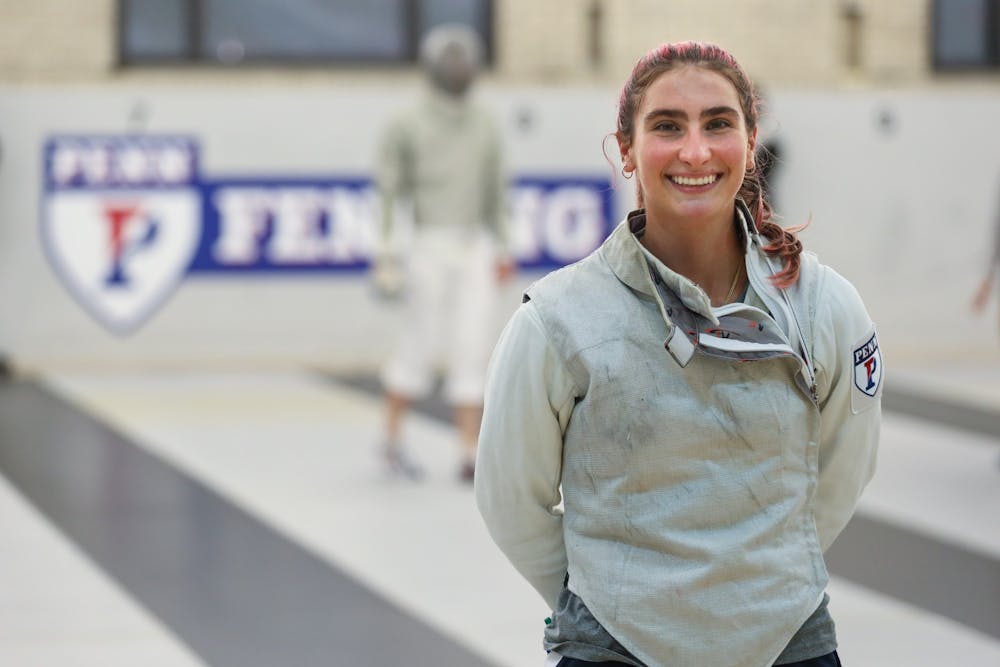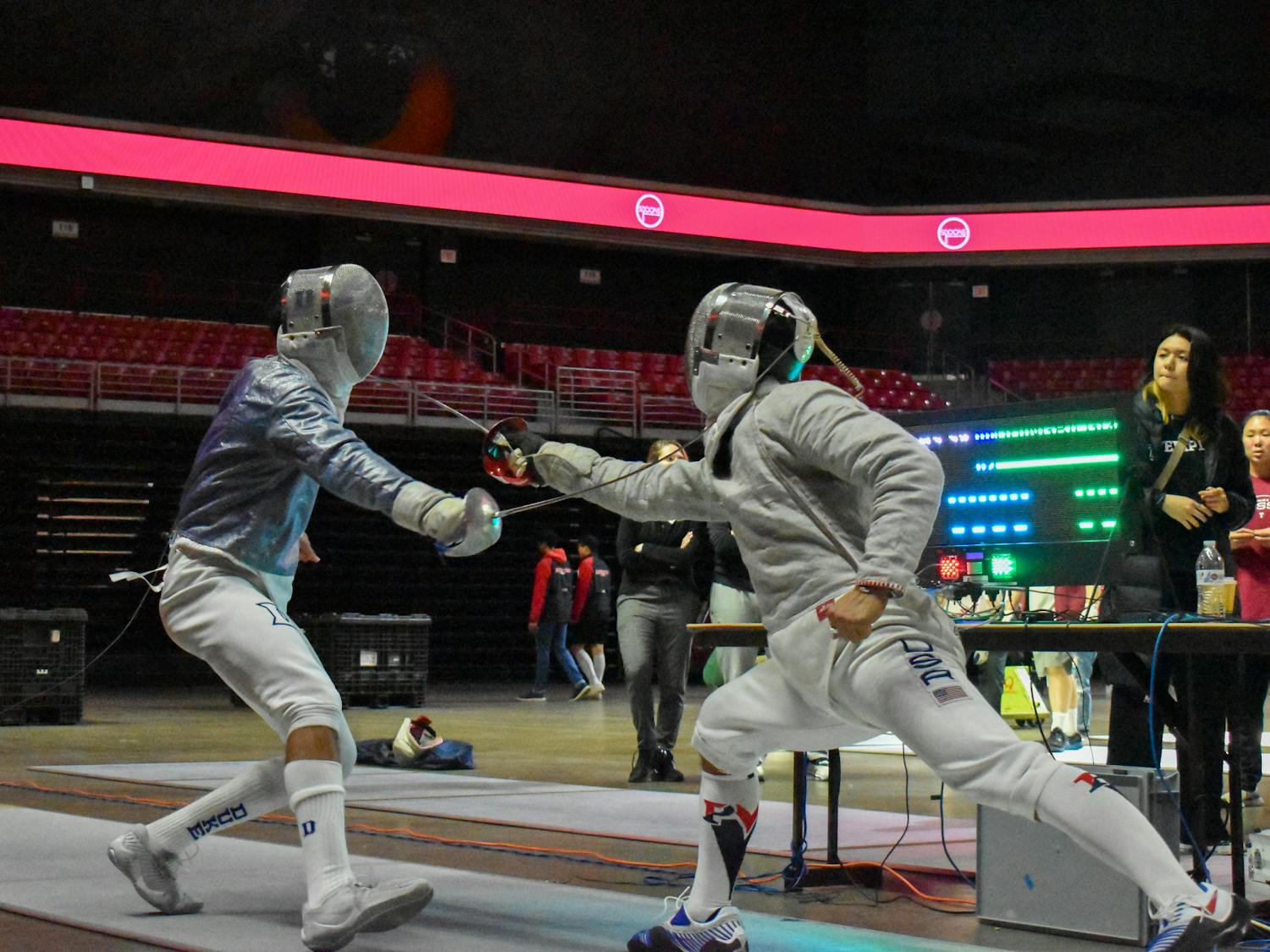For many teams, being in-season means playing at least once a week for a few consecutive months — but for Penn fencing, the schedule looks a little different.
The Quakers started their season at home on Nov. 16, competing against six teams in one day. The following week, the Red and Blue hit the road to take part in the Penn State Garret Open. But now, they have a long break before their next official event on Jan. 12.
While the calendar may seem odd compared to other sports, most players see it as an opportunity to go back to their hometowns and play at the same facilities they did before coming to Penn.
“It’s pretty normal to go back to our original high school club, especially because fencing is such an individual sport, so we're used to training individually,” senior foil and women's captain Nicole Vaiani said. “It’s interesting because some of us actually get some of our best training when we go back home. We see our coaches, our old teammates, and we’re back into the routine we had before.”

The opportunity for players to return to their high school clubs and train with other people is also seen as a positive factor for coach Andy Ma.
“We encourage them to go to their home club, and there are also some winter camps before our own, so having a break makes them come back even more prepared for the rest of the season,” Ma said.
The winter camp Ma referred to is held on campus from Jan. 6 to Jan. 10, which is an opportunity for athletes to get back to their in-season routine before the start of the semester.
RELATED:
New to the team, these Penn fencing freshman are stepping up on the mat
After a decade coaching Penn fencing, Andy Ma is the program's heart and soul
“[The winter camp] is a period of training all day and focusing more on fencing-related exercise, because we typically do more conditioning and body weight training when we don’t have events coming up,” senior sabre and men's captain Adam Green said. “But it’s also a period of team bonding. That’s the first time we’re spending all day together and we can strengthen the relationships before we go into the dense part of the season.”

Having a mid-season break in December also allows the younger Quakers to manage their time better, considering they are still adapting to the college routine and are going through their first final exam season. Even so, the athletes mostly agree that there are both positives and negatives of being away from the mat for so long.
“It’s definitely a nice time to have a break because we have a more flexible schedule and can focus on academics, but we never really stop training,” freshman sabre Enzo Bergamo said. “The downside is that you spend less time with your teammates, which is very important for college fencing. Compared to regular fencing, college competitions value the team results a lot more, so it’s important to be close to everyone and winter camp will help us with that.”
Bergamo also discussed the intensity of the spring semester for Penn fencing, which in his view, makes the break even more crucial.
“Once we get back, we compete in a frantic pace until the NCAA Championships. I haven’t been through it yet, but everyone tells me it’s always an intense couple of months,” Bergamo said.
Despite what their schedule may look like, it’s safe to say that the Red and Blue still work very hard during their downtime to make sure they return stronger than before. The Quakers officially get back into action on Jan. 12 when they compete in the Penn State Invitational.









